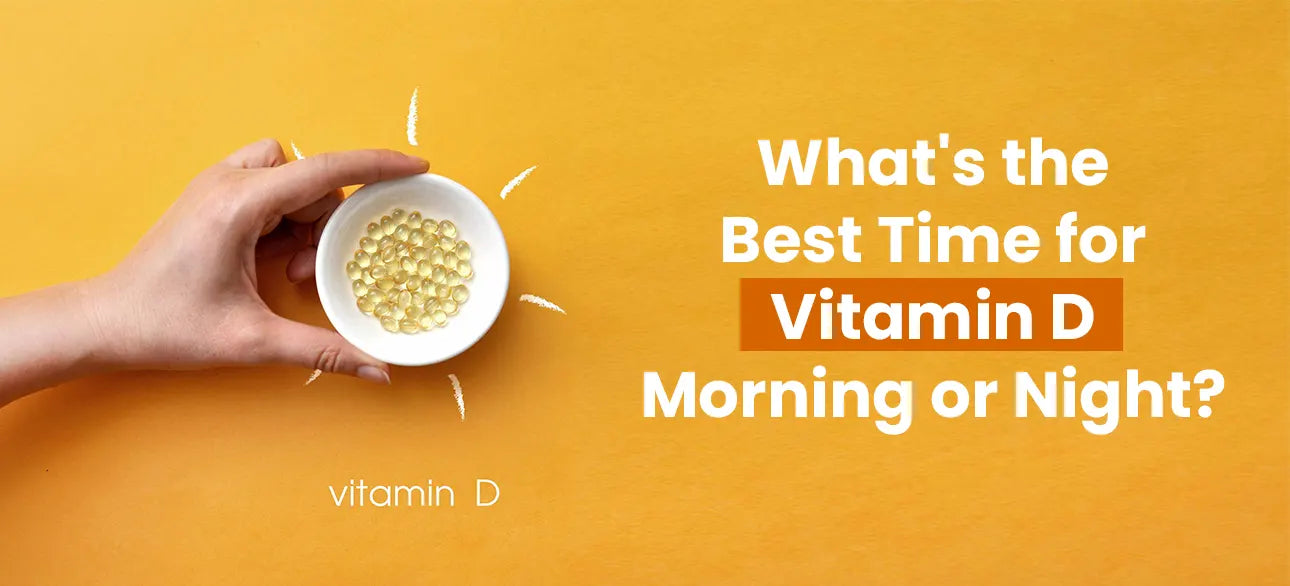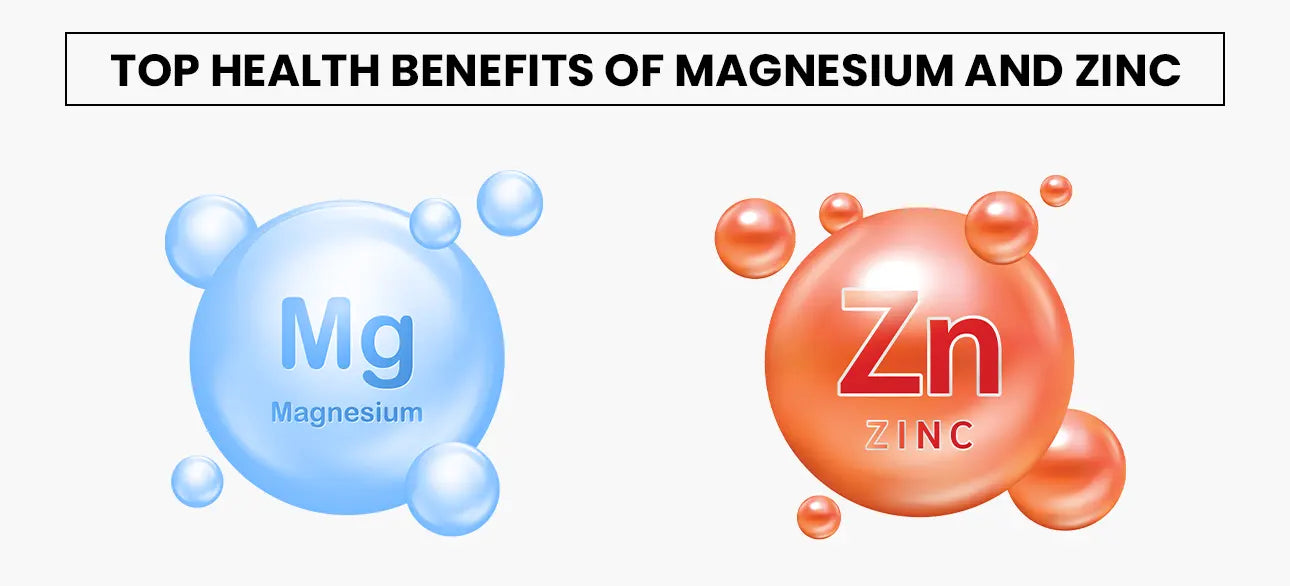Vitamin D3 and K2 Benefits for Your Health
Vitamin D3 and K2 complement each other to improve calcium absorption, support strong bones, heart health, muscle function, and immune system balance for overall wellness.
Advertiser Disclosure: We independently select all the products. If you click through links we provide, we may earn a commission.

Key Takeaways
- Vitamin D3 and K2 work together to enhance calcium absorption, support strong bones, heart health, muscle function, and immune system balance.
- Vitamin D3 is essential for calcium regulation and boosting immunity, while Vitamin K2 directs calcium to bones and teeth, preventing arterial buildup.
- Taking D3 with K2 ensures calcium is utilized efficiently for bone and cardiovascular health.
- Supplementation of D3 and K2 improves bone density, reduces osteoporosis risk, and may benefit cognitive health, especially in aging populations.
- The article explains the synergistic benefits of D3 and K2, their roles in calcium metabolism, and the importance of pairing them for optimal health benefits.
Introduction
Vitamin D3 and K2 which are fat-soluble, support strong bone health, heart health and overall well-being.
D3 (cholecalciferol) is required for your body to properly use calcium, strengthen your immune defense, and support its muscles. K2 helps guide calcium into your bones and teeth, but not into your arteries or heart.
If you take each vitamin separately, you enjoy some benefits, but when you take them together, they’re even more effective. That’s why taking D3 with K2 is recommended, especially in the form of a supplement. Since many are choosing holistic health, vitamin D3 and K2 supplements are becoming recognized for their strong connection.
Their combined action ensures calcium is absorbed efficiently and directed to the right places in the body, so sticking with them is a wise idea and a way to prevent shortages.
Understanding Vitamin D3
Function in the Body
Vitamin D3 helps control calcium in blood, strengthens the immune system and supports healthy muscle movement. Working together with magnesium and K2, vitamin D works better. So when you ask, “what’s vitamin D3 good for?”, the answer is that it helps both your bones and your immune defenses.
Sources
Sunlight, fatty fish, fortified dairy, egg yolks and D3 supplements all provide your body with good amounts of D3. People who do not get much sun can take products with vitamin D3 daily instead.
Deficiency Risks
Low Vitamin D3 might cause people to feel exhausted, suffer frequent infections, experience bone problems such as rickets or osteomalacia, and perhaps develop depression. You should aim to take D3 and K2 with your meals to help your body absorb them and gain the most benefit.
Understanding Vitamin K2
Function in the Body
To ensure the bones absorb enough calcium and to stop hardening of the arteries, vitamin K2 is important as it activates both osteocalcin and Matrix Gla Protein. Basically, K2 ensures calcium doesn’t build up in the arteries and stays where it is needed—bones and teeth. Vitamins that complement each other, like magnesium and K2, enhance vitamin D's effectiveness, ensuring optimal health benefits.
Sources
Among natural sources are fermented foods, hard cheeses, egg yolks and animal liver. However, some people still decide to use vitamin K supplements, mainly choosing forms like MK-7.
Deficiency Risks
Insufficient K2 may cause minerals in the bones to fragment, making fractures more likely and increasing the chances of heart disease.
Synergistic Benefits of D3 and K2
Combining D3 and K2 isn't just smart—it's scientifically sound. Here’s why K2 with D3 makes all the difference:
Enhanced Calcium Metabolism
D3 increases calcium absorption, but without K2, that calcium may deposit in arteries instead of bones. K2 activates proteins that channel it to where it's needed most, enhancing the benefits of K2 D3 for skeletal and cardiovascular health.
Bone Health
Studies show that K2 with D3 benefits include improved bone density and reduced osteoporosis risk. They work together to strengthen bones more effectively than either nutrient alone.
Cardiovascular Health
Vitamin K2 prevents calcium buildup in arteries, thus supporting heart health. This is one reason why K2 with D3 is often recommended for aging populations. Vitamin D3 plays a key role in heart health, especially for women. It helps regulate blood pressure and may reduce the risk of arterial stiffness and inflammation, both linked to heart disease. Keeping vitamin D3 levels healthy is important for supporting cardiovascular health.
Immune System Support
D3 boosts immune function, aiding in defense against infections. Some research suggests K2 may help modulate inflammation, offering additional immune balance.
Muscle Function
D3 helps regulate muscle contractions, contributing to strength and coordination, important as we age. Pairing it with K2 and magnesium can enhance these effects.
According to Dr. Michael Holick, PhD, MD,
Combining vitamin D3 with K2 is essential for effective calcium metabolism. While D3 helps your body absorb calcium, K2 ensures it’s directed to your bones rather than arteries, supporting both skeletal and cardiovascular health.
How Vitamin D3 May Support Cognitive Health and Help Prevent Alzheimer’s
You might be wondering if vitamin D3 can help protect your brain as well as your bones. The latest research points toward some promising ways D3 may contribute to cognitive health and possibly lower the risk of Alzheimer’s disease.
- Protects Brain Cells: Vitamin D3 appears to shield your brain’s nerve cells against damage, supporting memory and focus as you age.
- Supports a Healthy Brain Environment: D3 is thought to help reduce the formation of sticky amyloid plaques, which are linked with Alzheimer’s—a bit like keeping your brain’s “hallways” clear for smooth information flow.
- May Calm Brain Inflammation: Since ongoing inflammation is tied to dementia risk, vitamin D3’s ability to regulate your body’s immune response could help curb that, potentially preserving sharper thinking for longer.
Scientists are still uncovering all the details, but keeping your vitamin D3 levels in a healthy range may be another smart step for both mind and body as you grow older.
Recommended Dosages
Vitamin D3
The recommended dosage for adults is 800 IU - 5,000 IU per day. However, many experts believe that these recommended dosages are conservative and that higher doses might be required for optimal health, especially in regions with limited sunlight.
Vitamin K2
Typical daily doses are 90–120 mcg, though some dietary supplements offer more for targeted bone or cardiovascular support.
Combined Supplements
Many quality brands offer D3 and K2 vitamins in one convenient formula. When choosing a product, look for bioavailable forms like vitamin D3 + K2 (MK-7) for maximum benefit.
If you’re wondering, “how much K2 should I take with 5000 IU of D3?”, a common guideline is about 100–200 mcg of K2 for every 5000 IU of D3. Of course, it’s always a good idea to check with a healthcare provider to figure out what’s best for you.
Food Sources Rich in D3 and K2
Having whole food sources of vitamin D3 and K2 can benefit your health and may help you need less of those supplements. Opt for foods rich in nutrients and mix them with healthy fats, as vitamins A and K need fat for the best absorption. Vitamin D3 and K2
Vitamin D3 and K2
Foods High in Vitamin D3
- Good sources of omega-3 include salmon, mackerel and sardines.
- You can find D3 added to cow’s milk, common plant-based alternatives (almond or soy), orange juice and cereals.
- Egg yolks are a modest source and easy to add to your daily diet.
Foods High in Vitamin K2
- Natto which is a traditional Japanese soybean dish, is the richest in K2 (MK-7).
- Several types of hard cheese, especially Gouda and Edam, have lots of Vitamin K, mostly MK-4.
- Organ meats, like liver, still add some important amounts to your diet.
Meal Ideas to Maximize Intake
When you combine these foods wisely, you can make sure you get the nutrients your body needs.- The combination of grilled salmon, spinach, and a poached egg helps provide both D3 and K2 and healthy fat for better vitamin absorption.
- On top of the delicious taste, getting both vitamins from a cheese and mushroom omelet is easy.
- If you have tempeh, avocado and tahini, throw them together in a bowl to get a healthy, flavorful, plant-based option.
Frequently adding these foods to your meals provides vitamin D3 and K2 as well as boosts your gut and heart health.
Supplementation Considerations
Choosing Quality Supplements
Not every supplement is made the same. When it comes to vitamin D3 and K2 supplements, buy products from brands that are open about their ingredients and get their goods tested by professionals. Choose an organically sourced, D3 form called cholecalciferol when buying vitamin D. Because MK-7 stays functionally longer in the body, it is recommended to use MK-7 as your form of K2.
Potential Interactions and Safety
Generally, K2 supplements are safe, but they may affect the action of warfarin and similar blood thinners. Those taking medications or having a medical problem should first talk to a healthcare provider before adding D3 + K2 supplements.
Maximizing Absorption
D3 and K2 can be most efficiently taken when added to a meal that contains healthy fats like avocado, nuts, olive oil, or fatty fish. Always eat something before using them so your body can absorb all the nutrients. When taking vitamin D3, some also include K2 and magnesium because these help calcium regulation and strengthen muscle function.
Conclusion
Vitamin D3 and K2 are known to help strengthen bones, maintain heart health, safeguard the immune system, and keep skin looking good. Taking D3 boosts how much calcium can be absorbed, and K2 ensures that the calcium is safely sent to the bones and not to the vessels in your arteries. They perform even better when they join their efforts. They are also considered one of the best vitamins for joint health.
Why take D3 with K2? Because their combination helps with the proper metabolism of calcium.
If you’re considering vitamin D3 and K2 supplements, make sure they are supported by science and are easy for your body to use. You can improve the effects even more by including magnesium.
Balancing your D3 and K2 through a good diet or supplements is something smart for long-term health.
FAQs
References
Flawless Bloom has strict sourcing policies and relies on primary sources such as medical organizations, academic institutions, governmental agencies, and peer-reviewed scientific journals. Read more about how we ensure our content is accurate, thorough, and unbiased by reading our editorial process.
- Vitamin D and the Immune System - PMC https://pmc.ncbi.nlm.nih.gov/articles/PMC3166406/
- Vitamin D - The Nutrition Source https://nutritionsource.hsph.harvard.edu/vitamin-d/
- Vitamin K Dependent Proteins and the Role of Vitamin K2 in the Modulation of Vascular Calcification: A Review - PMC https://pmc.ncbi.nlm.nih.gov/articles/PMC4052396/
- The Synergistic Interplay between Vitamins D and K for Bone and Cardiovascular Health: A Narrative Review https://pmc.ncbi.nlm.nih.gov/articles/PMC5613455/
- Mechanisms of vitamin D on skeletal muscle function: oxidative stress, energy metabolism and anabolic state - PMC https://pmc.ncbi.nlm.nih.gov/articles/PMC6422984/
- Vitamin D - NHS https://www.nhs.uk/conditions/vitamins-and-minerals/vitamin-d/
- Vitamin K - Health Professional Fact Sheet https://ods.od.nih.gov/factsheets/VitaminK-HealthProfessional/






























